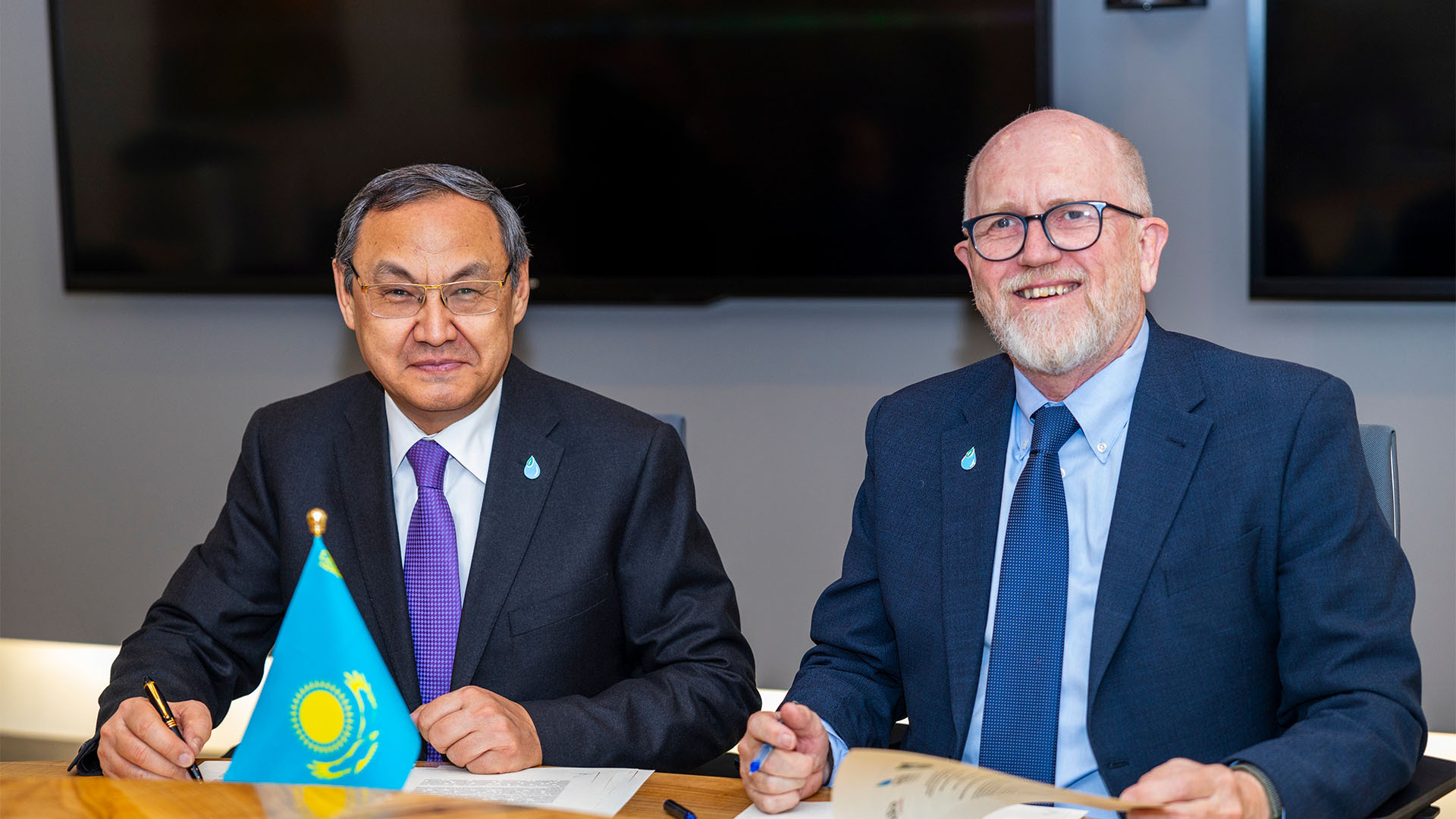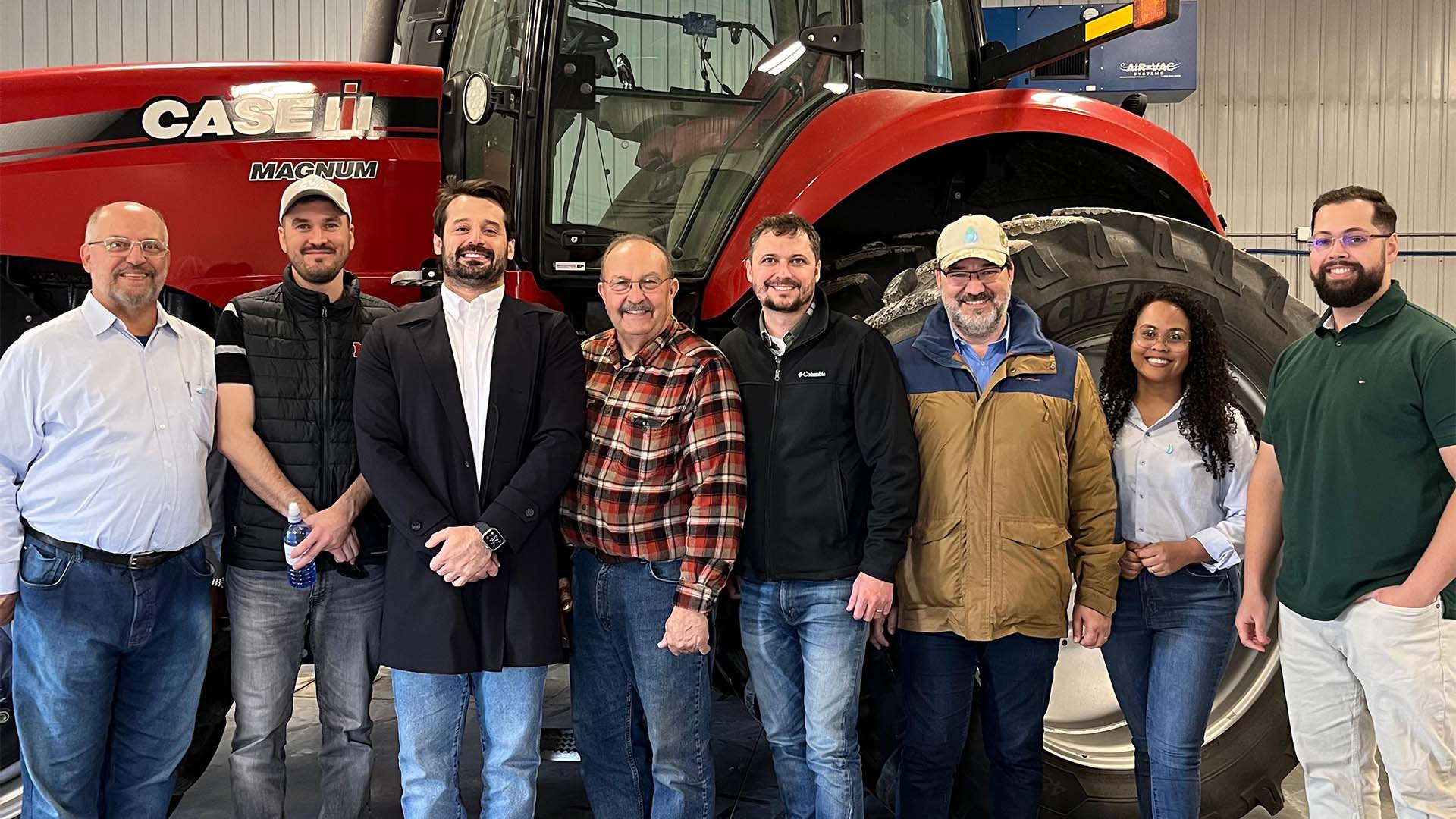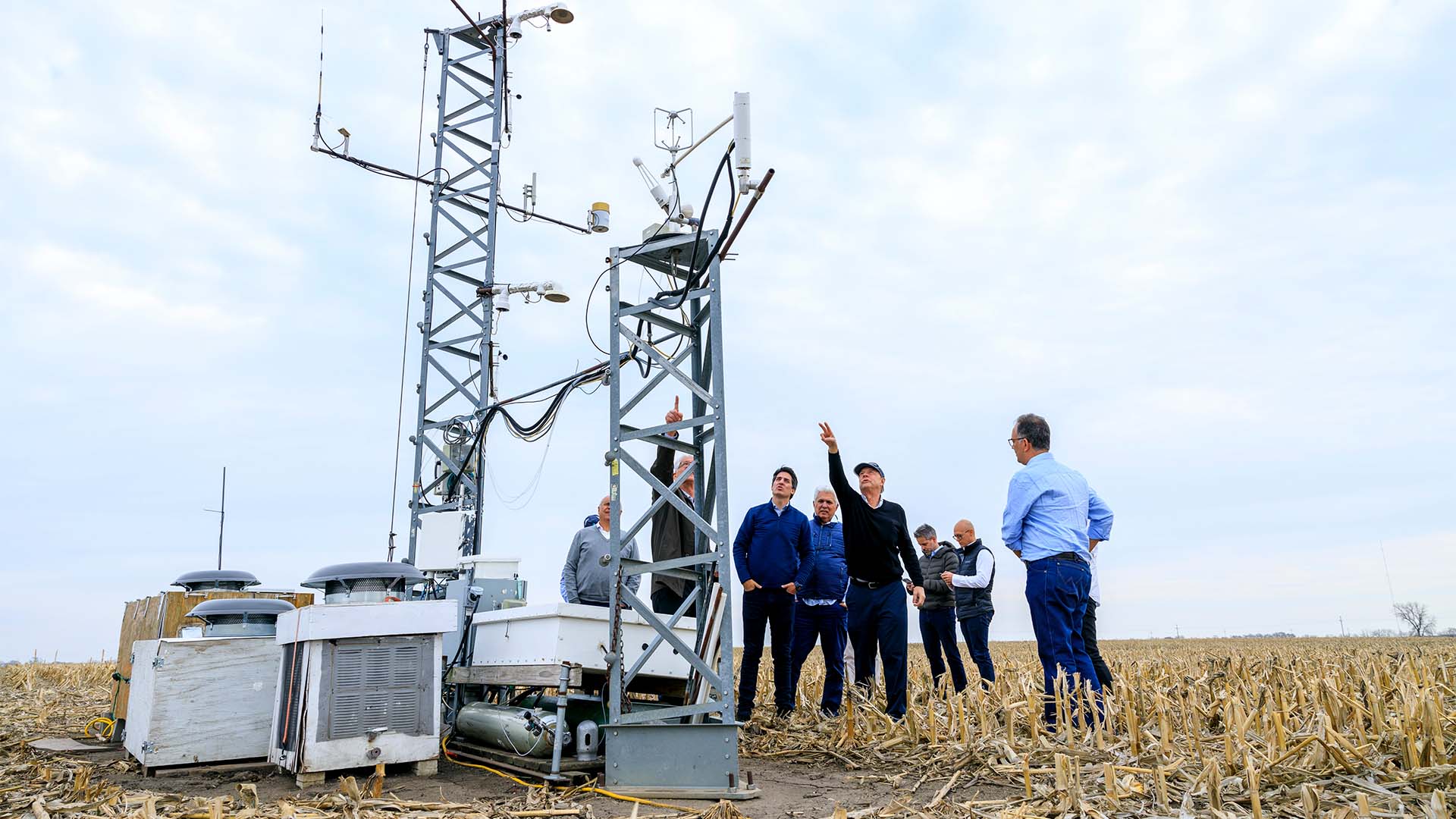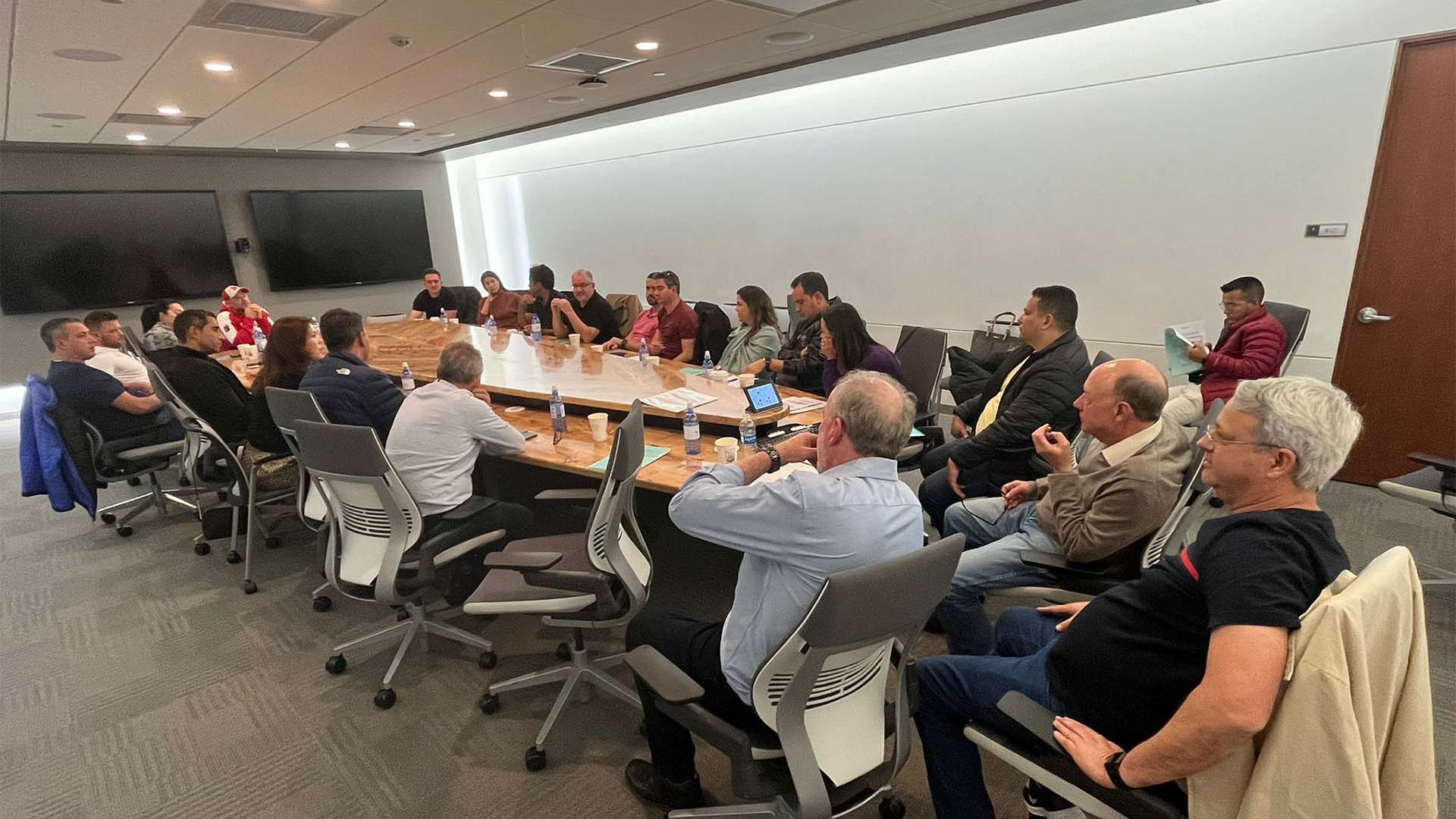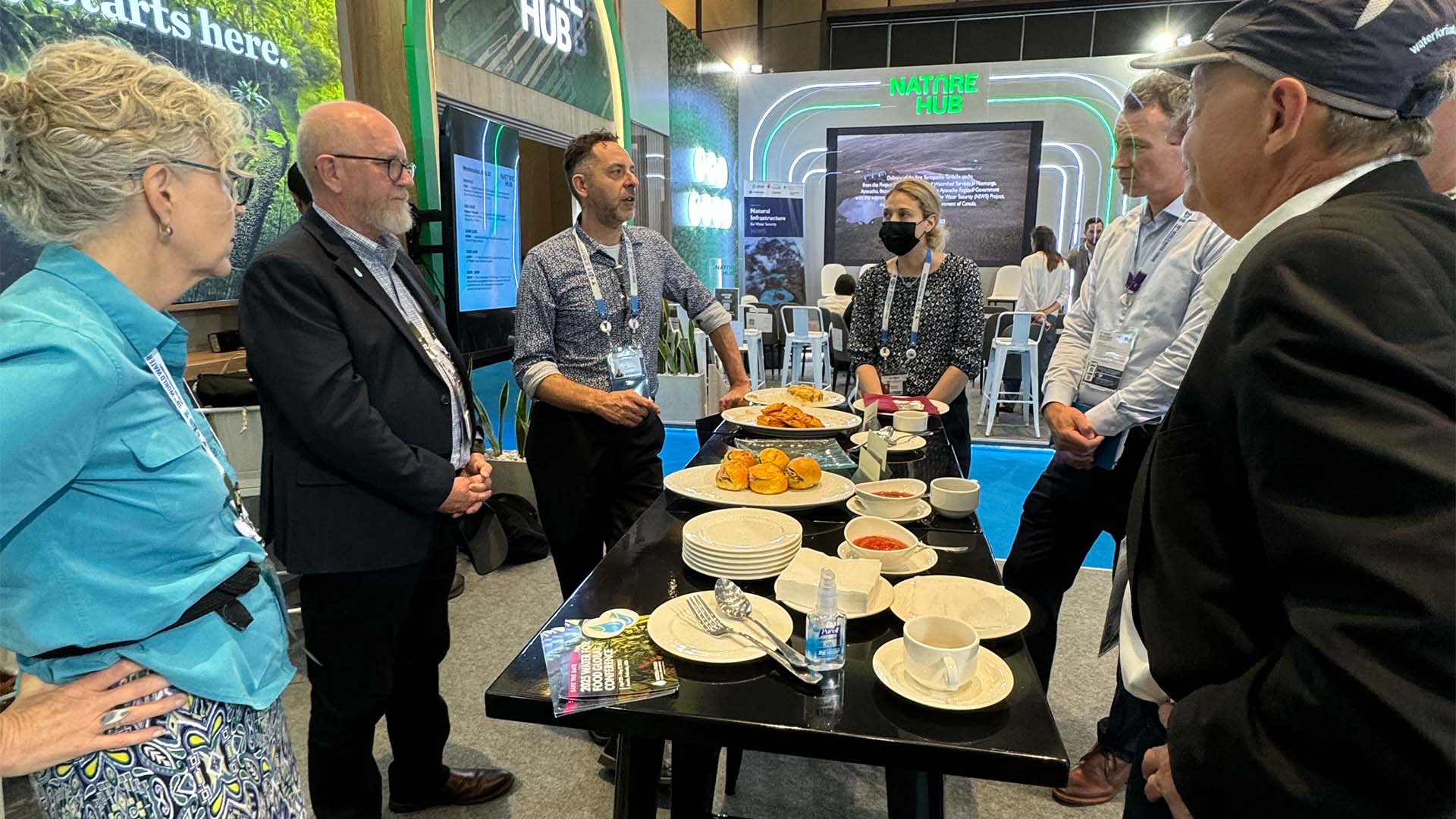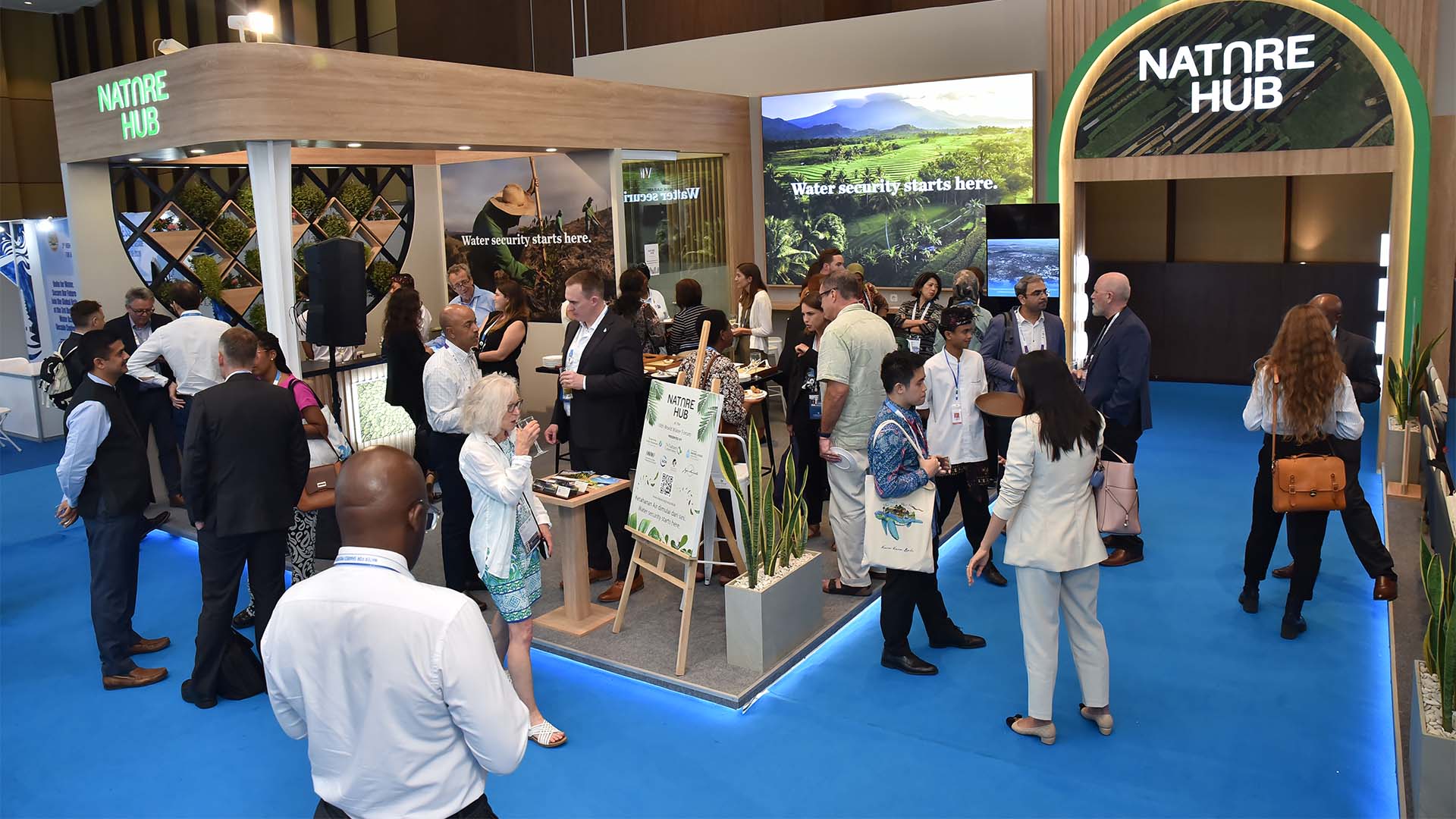Key collaborations
One of DWFI’s values is collaboration among a wide variety of public, private and non-profit organizations and individuals, and strong staff teamwork, to help us achieve the greatest impact. The institute forms strong relationships and collaborates with partners to expand and enhance our mission in order to have the greatest impact. We greatly value all our partners, which can be viewed in the Strategic Partnerships section of this annual report. In addition to our University of Nebraska partner, the following are a sample of collaborative partners that have been instrumental in our success over the past year.
Global Agricultural Productivity Report
The Global Agricultural Productivity Report (GAP Report) is an annual call to action to invest in proven strategies to produce food, feed, fiber, and bioenergy in a sustainable manner to meet the needs of a growing world. DWFI is a consultative partner of the GAP Report and the GAP Initiative at Virginia Tech University that supports it. DWFI provided a partner story for the report, sharing its research that challenges the assumption that ownership of irrigation equipment provides the maximum utility to smallholder farmers. DWFI will also have a feature in the 2024 GAP Report to be released in Fall 2024.
Indo-US Millets Initiative
DWFI is a collaborative partner of the newly-created Indo-U.S. Millets Initiative formed by Sorghum United, the North American Millets Alliance (NAMA), and the India Millet Initiative. The initiative will leverage DWFI's expertise in the areas of water productivity, conservation, and greenhouse gas mitigation. The Indo-U.S. Millets Initiative aims to expand awareness, market development, and the exchange of knowledge for small, ancient grains between partners in India and the United States. An expression of interest between DWFI and the other three entities involved was signed on December 21, 2023.
Inter-American Institute for Cooperation on Agriculture
DWFI is a partner of the Inter-American Institute for Cooperation on Agriculture (IICA) on its new initiative on water for agriculture to foster sustainable development across the Americas. The initiative also includes the World Bank Group, the United Nations Economic Commission for Latin America and the Caribbean (CEPAL) and the Inter-American Development Bank. IICA works throughout the Americas on agricultural development and rural well-being.
Invest Nebraska
DWFI and Invest Nebraska released their first “Nebraska agtech startup ecosystem map” in 2021. Since then, more than 10 new agtech startups have been founded in Nebraska. At the same time, the broader innovation ecosystem has grown, contributing to the state’s economic development. The new 2024 agtech innovation map looks at the evolving and expanding entrepreneurial landscape in Nebraska and was presented to Nebraska Governor Jim Pillen at an Agriculture Week celebration at Nebraska Innovation Campus.
Kazakh National Agrarian Research University
The University of Nebraska–Lincoln, through the Office of Global Partnerships and Initiatives and DWFI, hosted a delegation from the Kazakh National Agrarian Research University (KazNARU). The two entities signed a letter of intent, creating a formal partnership which follows a decade of informal collaborations in the Central Asia region.KazNARU is the longest standing university in Kazakhstan and has a rich history of international collaborations with universities and institutions around the world. It selected UNL to be its primary connection in the United States because of the university's focus on water and food security in a global agricultural context. KazNARU and UNL aim to increase opportunities for student training and global collaborations, especially since Kazakhstan and Nebraska have similar climates and face similar challenges in water quality.
National Aeronautics and Space Administration
The University of Nebraska Medical Center and DWFI’s Water, Climate and Health Program co-hosted a regional workshop with the National Aeronautics and Space Administration (NASA) and the University of Nebraska–Lincoln School of Natural Resources titled "Harnessing the Heartland: Utilizing Earth Observation Data for Improved Environmental Health." Environmental public health experts from across the Midwest and the University of Nebraska System discussed current research, projects, and opportunities to collaborate in environmental public health in the areas of air quality, natural disaster preparedness and extreme heat. Another NASA-funded workshop for public health professionals on drought and human health is being planned for Fall 2024.
OneCGIAR
DWFI and the OneCGIAR Andean Initiative jointly hosted a webinar entitled “The Water-Food Nexus in Mountain Systems,” which took a close look at several issues affecting interactions between water resources and agriculture in the two largest mountain chains in the world: the Andes and the Himalayas.
State and federal governments of Brazil
DWFI hosted several delegations from Brazil in spring 2024 to explore sustainable water usage and irrigation policies for the different states. They are looking to Nebraska for expertise in this area, including the state’s unique system of Natural Resources Districts. Delegations included a group from the state of Parana hosted by the state of Nebraska, as well as those from the states of São Paulo and Mato Grosso, the federal government of Brazil, and the national cooperative for agriculture. DWFI has previously worked with the states of Bahia and Mato Grosso to intensify agricultural production sustainability in their respective areas.
The Nature Conservancy
DWFI and the Nature Conservancy have jointly hosted a “Nature Hub” exhibitor booth at various large-scale global events over the past several years, most recently working together for the 10th World Water Forum. Through this partnership, they promote nature’s role in driving water security while achieving efficiencies in staff and budget resources between the two entities.
The World Bank
World Bank Senior Economist and DWFI Global Fellow Soumya Balasubramanya, along with co-authors including Ankit Chandra, DWFI research program manager, and Nick Brozović, DWFI director of policy, published their perspective on the opportunities and risks of solar-powered groundwater irrigation in Science magazine. In brief, solar irrigation offers the potential to alleviate poverty and expand clean energy use in agriculture. But policymakers need to understand behavioral responses that might increase groundwater pumping and limit the effectiveness of related carbon emission reduction programs.
U.S. Agency for International Development
The U.S. Agency for International Development (USAID) selected DWFI to lead its new Feed the Future Innovation Lab for Irrigation and Mechanization Systems (ILIMS) in October 2023. The Innovation Lab will generate research-based evidence to support the growth of vibrant irrigation and mechanization markets, develop strong institutions and local capacity for their sustainability, and foster opportunities for equitable access in Feed the Future focal countries. ILIMS is one of more than 20 Feed the Future Innovation Labs led by U.S. universities and funded by USAID that work on food security and nutrition challenges with local researchers and institutions in the Agency’s partner countries.
U.S. Farmers and Ranchers in Action
U.S. Farmers and Ranchers in Action (USFRA) partnered with DWFI to create a series of infographics highlighting the importance of water use in US agriculture, including physical, economic, and agronomic aspects. Additionally DWFI served as a sponsor and invitee of the USFRA Honor the Harvest Forum.
Top image caption
DWFI staff meet with collaborative partners from the International Water Management Institute at the World Water Forum in Indonesia.
Credit: DWFI
COOKIE USAGE:
The University of Nebraska System uses cookies to give you the best online experience. By clicking "I Agree" and/or continuing to use this website without adjusting your browser settings, you accept the use of cookies.


